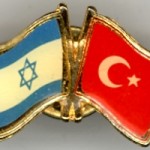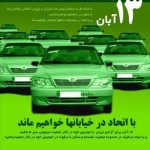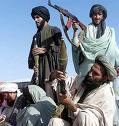Tuesday
Oct132009
Middle East: Israel's Troubles with a Turkish Ally
 Tuesday, October 13, 2009 at 8:07
Tuesday, October 13, 2009 at 8:07
The Results of the Mitchell Israel-Palestine Trip: Nothing
Receive our latest updates by email or RSS SUBSCRIBE TO OUR FEED
Buy Us A Cup of Coffee? Help Enduring America Expand Its Coverage and Analysis
 On Sunday, Ankara made a dramatic last-minute decision to bar Israel from an international military exercise on Turkish soil. Israeli leaders see the decision as a political response linking to Turkey's continuing criticisms over Israel's military operations in Gaza.
On Sunday, Ankara made a dramatic last-minute decision to bar Israel from an international military exercise on Turkish soil. Israeli leaders see the decision as a political response linking to Turkey's continuing criticisms over Israel's military operations in Gaza.
On Sunday, Turkish Foreign Minister Ahmet Davutoglu spoke to CNN:
On the same day, Several Israeli defense officials said advanced weapons sales to Turkey would now be reviewed, and a leading academic expert on Israeli-Turkish relations suggested ending support for Turkey on the Armenian genocide issue in Washington if the deterioration in ties continues.
The Turkish Foreign Ministry tried to minimise the issue on Monday:
This may have eased the situation, as Israeli Defense Minister Ehud Barak responded:
Yet nothing in Middle East is ever limited to straightforward bilateral exchanges. The Turkish-Israeli tension occurs as Ankara's extends its Middle Eastern presence with other ties. On Tuesday, ten Turkish ministers including the Foreign Minister travelled to Damascus for the meeting fo the Turkey-Syria High Level Strategic Cooperation Council, established last month.
Receive our latest updates by email or RSS SUBSCRIBE TO OUR FEED
Buy Us A Cup of Coffee? Help Enduring America Expand Its Coverage and Analysis
 On Sunday, Ankara made a dramatic last-minute decision to bar Israel from an international military exercise on Turkish soil. Israeli leaders see the decision as a political response linking to Turkey's continuing criticisms over Israel's military operations in Gaza.
On Sunday, Ankara made a dramatic last-minute decision to bar Israel from an international military exercise on Turkish soil. Israeli leaders see the decision as a political response linking to Turkey's continuing criticisms over Israel's military operations in Gaza.On Sunday, Turkish Foreign Minister Ahmet Davutoglu spoke to CNN:
We hope that the situation in Gaza will be improved. The situation will be back to the diplomatic track. And that will create a new atmosphere in Turkish-Israeli relations as well. But in the existing situation, of course we are criticizing this ... Israeli approach.
On the same day, Several Israeli defense officials said advanced weapons sales to Turkey would now be reviewed, and a leading academic expert on Israeli-Turkish relations suggested ending support for Turkey on the Armenian genocide issue in Washington if the deterioration in ties continues.
The Turkish Foreign Ministry tried to minimise the issue on Monday:
The international part of the Turkish exercise had merely been postponed and it is inappropriate to draw a political meaning and conclusion from the postponement. it is impossible to accept the assessments and comments attributed to Israeli officials in the press. We invite Israeli officials to [use] common sense in their stance and statements.
This may have eased the situation, as Israeli Defense Minister Ehud Barak responded:
Israel's relations with Turkey are strategic, and have existed for dozens of years. Despite all the ups and downs Turkey continues to be a key player in our region.
Yet nothing in Middle East is ever limited to straightforward bilateral exchanges. The Turkish-Israeli tension occurs as Ankara's extends its Middle Eastern presence with other ties. On Tuesday, ten Turkish ministers including the Foreign Minister travelled to Damascus for the meeting fo the Turkey-Syria High Level Strategic Cooperation Council, established last month.

 1930 GMT: The reformist Assembly of Combatant Clergymen, paralleling the statements of Mohammad Khatami,
1930 GMT: The reformist Assembly of Combatant Clergymen, paralleling the statements of Mohammad Khatami,  Receive our latest updates by email or RSS
Receive our latest updates by email or RSS  Iraq continues to be the forgotten American war, as attention turns to Afghanistan and Pakistan, but the always-excellent Juan Cole
Iraq continues to be the forgotten American war, as attention turns to Afghanistan and Pakistan, but the always-excellent Juan Cole